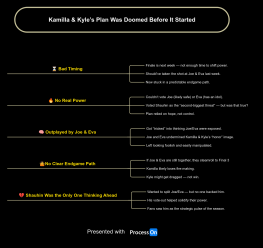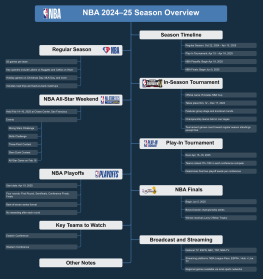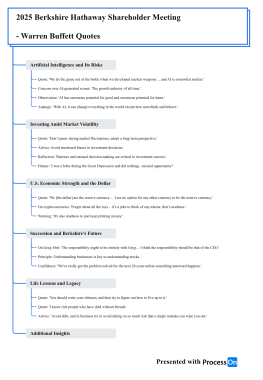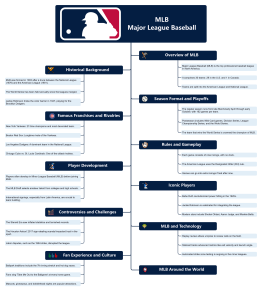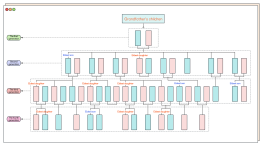Greek mythology genealogy
2024-09-04 17:46:46 206 2 Report 0
0
Login to view full content
This mind map serves as an exploration into the intricate genealogy of Greek mythology, a rich tapestry of gods, titans, and legendary heroes. It begins with Chaos, the primordial void, who gave birth to the original deities like Gaia and Uranus. From their union emerged the Titans, including Cronus and Rhea, who birthed the Olympian gods such as Zeus, Poseidon, and Hades. The map also delves into the tales of Zeus's rise to power, his offspring, and the twelve Olympian gods who ruled various realms. Additionally, it highlights the mythological heroes and the different ages of mankind, revealing a complex narrative of divine and mortal interactions.
Other creations by the author
Outline/Content
Concepts of Greek Mythology
Greek mythology is a polytheistic system.
God
Chaos
Chaos gave birth to darkness and night, and then they in turn gave birth to light and day.
At night, solitude gives birth to fate, misfortune, death, sleep, dreams, aging, pain, revenge, and the like.
original deity
Gaia (Goddess of the Earth)
God of Heaven — Uranus
Although a descendant of the Earth Goddess, she became her husband.
descendants
The three Cyclopes
three hundred-armed giants
12 Titans
Male Titan God
Oceanus: the god who presides over the oceans and rivers.
Coeus (Coeus): Related to celestial bodies, possibly symbolizing darkness, intelligence, or inquiry into the divine.
Iapetus: God of the soul, god of death.
Hyperion: God of Light, Sun God.
Crius: God of growth and vitality.
Cronus: God of the sky and time-space, the smallest of the Titans, the second-generation king of the gods.
Taking advantage of the moment when his father was about to bed the goddess Gaia, he cut off Uranus's little chicken with a sickle.
The new king of the gods after Uranus
Worried that the Cyclopes and the Hundred-Handed Giants would affect his rule, he imprisoned them in Tartarus and posted a monster named Campe to guard them.
Camp
This is a creature with the upper body of a woman and the lower body of a fierce dragon, her hair is made of poisonous snakes, and there are 50 heads of beasts wrapped around her shoulders and waist.
Female Titan God
Thea: Goddess of treasures, sunlight, and sight.
Rhea: Goddess of abundance, time, and frost, the second-generation queen of the gods. Sister and wife of Cronus.
The children swallowed by Cronus
Hestia
Demeter
Hera
Hades
Hades
Zeus (the sixth child)
Zeus was hidden on the island of Crete, then wrapped a stone and handed it to his husband Cronus to deceive him, making him swallow it.
The process by which Zeus overthrew Cronus
Zeus first went to see the goddess of wisdom, Metis.
The goddess of wisdom prepared a poisonous wine for Zeus, which would cause him to vomit incessantly. Zeus, carrying the poisoned wine, disguised himself as the cupbearer of Cronus and tricked him into drinking it.
Thus, Cronus continuously vomited and regurgitated the children he had previously swallowed, but they had all grown up.
Cronus and his Titan brothers waged a 10-year war with the Olympians.
However, guided by the Earth Goddess Gaia, Zeus went to Tartarus and released the imprisoned Cyclopes and Hecatoncheires. These Cyclopes forged legendary weapons for Zeus and his allies.
Zeus — Thunder
Poseidon —— Trident
Hades — Invisible Helmet
In the end, they defeated the Titans and imprisoned them in Tartarus, with one exception: a Titan named Atlas, who was punished by Zeus to hold up the entire world on his shoulders.
Typhoeus, the last child of Gaia, a monster symbolizing the storm, attacked Zeus, but Zeus's lightning defeated Typhoeus, burying the monster beneath the volcanoes of Sicily.
Themis: Goddess of water, goddess of order and justice.
Mnemosyne: Goddess of memory, one of the three Muses of poetry.
Phoebe: Response, Oracle of the Moon Goddess.
Tethys: Goddess of the Oceanic Abyss
Uranus was castrated and his blood fell upon the Earth, giving birth to
Giants
Merrier
Nymphs living in the forest will become the mothers of the third generation of humanity, the humans of the Bronze Age, while this generation of humans is characterized by a warlike and savage nature.
The Furies
Uranus was castrated and his genitals fell into the sea, creating a foam.
Aphrodite, the goddess of love and beauty, was born in the foam.
Neptune
Mountain God
Typhoon (the monster symbolizing the storm)
Tartarus (the abyss of hell)
Eros (God of Love and Desire)
The twelve Olympian gods
King of the Three Realms
Zeus (King of the Gods)
Bulls and eagles are often used to represent Zeus in many works of art.
Hera (Queen of the Gods)
Oversees marriage and childbearing
Poseidon (Neptune)
Weapon: The trident forged for the Cyclops by himself
Poseidon, Zeus, and Hades are three brothers.
Control: the ocean, storms, earthquakes, and stallions
Hades (God of the Underworld)
Persephone (Queen of the Underworld)
Demeter (Goddess of Agriculture)
Apollo (the Sun God)
In addition to the sun, it also governs archery, music, dance, language, medicine, and poetry.
Artemis (Goddess of the Moon)
Controls not only the moon, but also chases, hunts, and produces.
Athena (Goddess of Wisdom)
The guardian deity of Athens
still in charge of the war
Ares (God of War)
Ares better represents a bellicose nature and the brutality and slaughter of war.
Aphrodite (Goddess of Love and Beauty)
Roman name: Venus
Beside, Cupid often accompanies.
Hephaestus (God of Fire)
Controls fire and volcanoes, and also many crafts-related skills such as: blacksmithing, carpentry, sculpture, etc.
Dionysus (the God of Wine)
In charge of brewing
Hermes (Messenger of the Gods)
Messenger of the gods
is also the guardian of travelers, merchants, and thieves
He will also lead the dead to Hades, the god of the underworld.
Hestia (Goddess of the Hearth and Home)
It also oversees the flames and offerings during the sacrifice.
Once fought alongside the god king Zeus to overthrow the previous generation of Titans.
12 main gods relationship
Zeus's brothers and sisters
Hestia
Demeter
Hera
Hades
Hades
Zeus's children
and the children of Metis
Athena (Goddess of Wisdom)
The guardian deity of Athens
still in charge of the tactics of war
The story of Athena's birth
Fearful of giving birth to a child who would overthrow him, Zeus swallowed Metis. However, Metis was already pregnant, so the daughter grew in Zeus's mind and was equipped with armor, a spear, and a shield. When she grew up, she struck Zeus's head with her weapons, causing him unbearable pain. Zeus then summoned Hephaestus, the god of fire and blacksmithing, and had his skull split open. Thus, the daughter leaped out from her father's head.
When Metis, the goddess of wisdom, helped Zeus defeat the previous Titan king, she prepared a poison wine that caused Cronus to vomit incessantly, eventually regurgitating Zeus's siblings.
and Hera's child
Ares (God of War)
Ares better represents a bellicose nature and the brutality and slaughter of war.
Hephaestus (God of Fire, God of Smithing)
Controls fire and volcanoes, and also many crafts such as blacksmithing, carpentry, sculpting, and more.
Not handsome enough and also a cripple.
the children of Leto
Apollo (Sun God)
In addition to the sun, it also governs archery, music, dance, language, medicine, and poetry.
Artemis (Goddess of the Moon)
Controls not only the moon, but also chases, hunts, and produces.
the child of the goddess Maia
Hermes (Messenger of the Gods)
Messenger of the gods
is also the patron god of travelers, merchants, and thieves
He will also lead the dead to Hades, the god of the underworld.
and the child of the mortal woman Semele
Dionysus (God of Wine)
In charge of brewing
Aphrodite (Goddess of Love and Beauty)
Of unknown origin, he is recorded in the "Homeric Epics" as the daughter of Zeus.
Roman name: Venus
Beside, Cupid often accompanies.
Secondary gods
The children of Eurynome, the goddess of the sea
The Three Graces (between the spirits of the divine river)
Goddess of Radiance Aglaia (Aglaia)
Incentive Goddess Thalia
Goddess of Joy Euphrosyne
Fairy
Sea nymph
Forest Fairy
Fairy of the mountains
monster
Typhoon (a monster symbolizing the storm)
Hundred-Headed Dragon
Hydra
Cerberus
Cerberus
Sphinx
The Gorgon Medusa
Versace's brand logo
Sphinx
Its image is composed of a hybrid of human, lion, ox, and eagle.
Heroes
Descendants of gods or spirits on earth
Descendants of gods or spirits on earth
Hercules
family background
In her infancy, Hera placed a viper in the cradle with the intention of killing Hercules, but it was strangled to death by the infant Hercules with his bare hands.
After growing up, Hera drove him to madness, and in his frenzy, he killed his wife and children.
To atone for his sins, Hercules needed to complete twelve tasks.
These tasks were designed by his stepmother Hera, with the purpose of punishing him for accidentally killing his own family members. Here is a brief overview of the twelve tasks:
Hercules needs to slay a lion that is almost invincible, its hide impervious to harm.
Kill the Hydra: The Hydra is a monster with nine heads, each of which can regenerate after being cut off.
Capture the golden deer: The golden deer is a sacred animal, extremely fast, Hercules needs to capture it without harming it.
Capture the Erymanthian Boar: This boar is a fierce beast, Hercules needs to capture it alive.
Cleaning Augeas's stables: Augeas's stables were very dirty and messy, Hercules needed to clean them up within a day.
Drive away the birds of Stymphalian Lake: These birds are a flock of fierce monsters, Hercules needs to drive them away.
Capture the bull of Crete: This bull is a very strong and dangerous beast.
Acquire Dionysus's mares: These horses are the sacred animals of Dionysus, and Heracles needs to bring them back.
To obtain the belt of the Amazon queen: Hercules needed to acquire the girdle from the Amazon queen Hippolyta.
Retrieve the golden apples of the Hesperides: These apples are guarded by the hundred-headed dragon Ladon, Hercules needs to obtain them.
Bringing Cerberus from the underworld: Cerberus is the three-headed dog guarding the underworld, Hercules needs to bring him back to the human world.
To build an arena within a day: this was Hercules' final task, he needed to construct an arena within a day for Hercules to compete in.
Finally died from the poisoned blood of the evil centaur.
However, his father Zeus deified him, lifted him up to Mount Olympus, where he lived among the gods, and even Queen Hera ultimately reconciled with him.
Achilles
family background
Perseus
family background
Jason
Theseus
Odysseus
The inventor of the Trojan Horse strategy
human
The Golden Age
The era of the Titans' reign
God King: Cronus
God created humans in His own image, and humans lived in harmony with the divine. Animals could communicate with humans, life was abundant, and the seasons were like spring. There was no need for labor, food and clothing were secure, and people lived in joy and love. They did not experience sadness, aging, or sickness. When their life span ended, death came quietly in sleep without pain, and after death, people became souls wandering on the earth.
The Silver Age
God King: Zeus
The gods divided the year into four seasons, people need to work, need to find shelter, are born ignorant and naive, it takes 100 years to grow up, and even as adults humans are foolish, not knowing to revere the gods, angering Zeus, so he destroyed this generation.
The Bronze Age
God King: Zeus
During this period, humans were very strong and fond of war, mainly eating meat instead of grains, wearing bronze armor, wielding bronze weapons, with houses made entirely of bronze, worshipping the god of war, Ares. Most of them ultimately died from mutual slaughter, and the survivors were swallowed up by the great flood sent by Zeus.
The Heroic Age
God King: Zeus
In this era, people are noble and hold a greater reverence for the divine. In fact, this is also the most familiar generation to us, which can be considered the Mycenaean era, a generation described in the Homeric epics. Many heroes were semi-divine, but most of these heroes died in war, such as the famous Trojan War. After their deaths, they went to the underworld, not to the dreadful Hades, but to a place called the Elysian Islands, where they live happily and blissfully. It is said that the king of the gods, Zeus, even sent the overthrown previous generation's king of the gods, Cronus, to rule and govern this underworld paradise.
The Iron Age
God King: Zeus
In modern times, Hesiod, the creator of the Theogony, lived in an era where people existed under pressure, ceaselessly rushing and toiling for survival. In this age, morality had declined, with people deceiving and hating each other. They were anxious, aging rapidly, and eventually, they would lose all sense of propriety, integrity, and shame. Evil and sin would proliferate, and ultimately, the gods would abandon humanity, with Zeus bringing down disasters to destroy mankind once again.
other versions of human story
Prometheus created mankind.
He defied Zeus's command and brought fire to humanity.
Pandora's box
Brought various disasters to humanity, but also preserved stories of hope.
0 Comments
Next page


